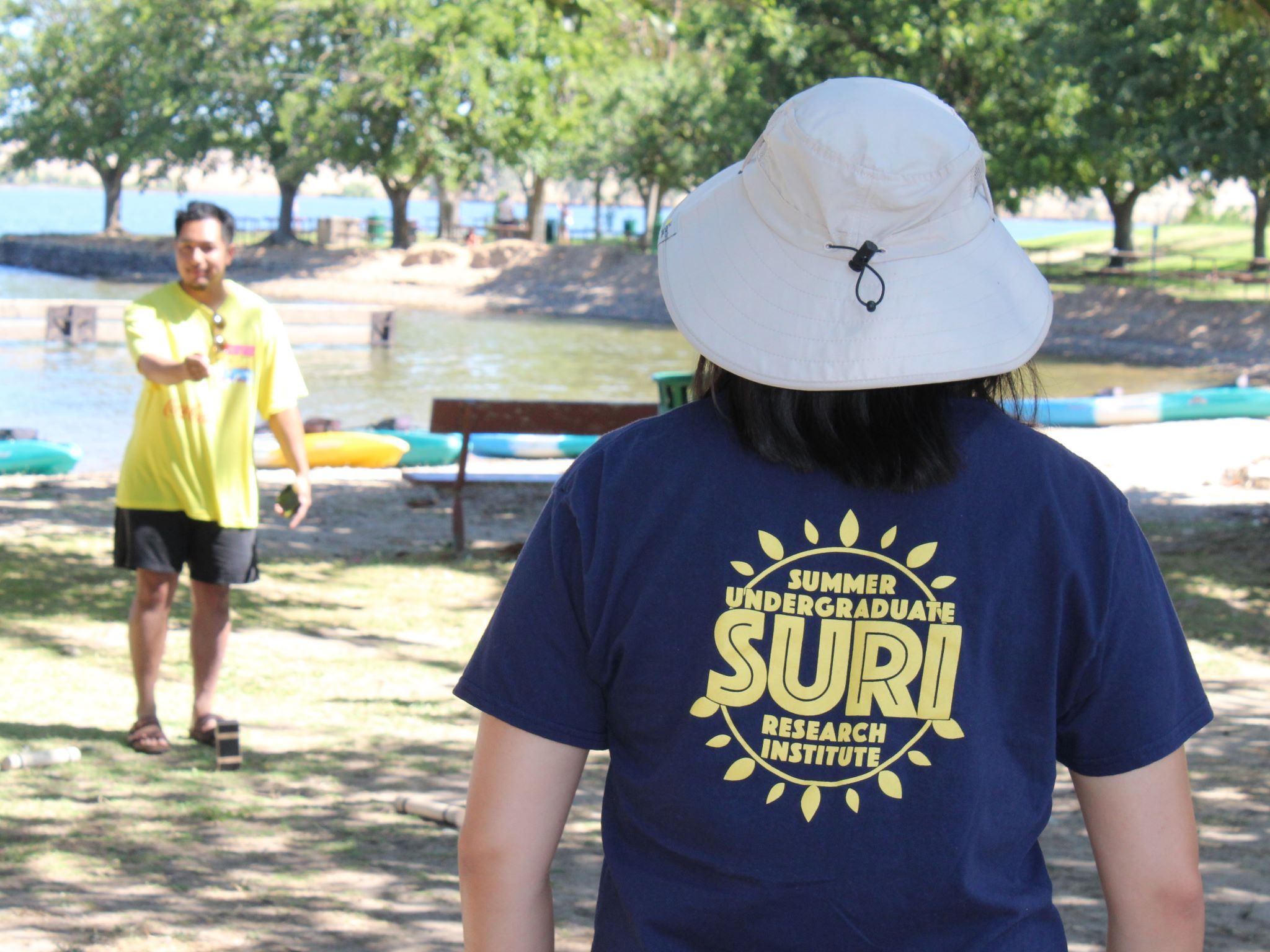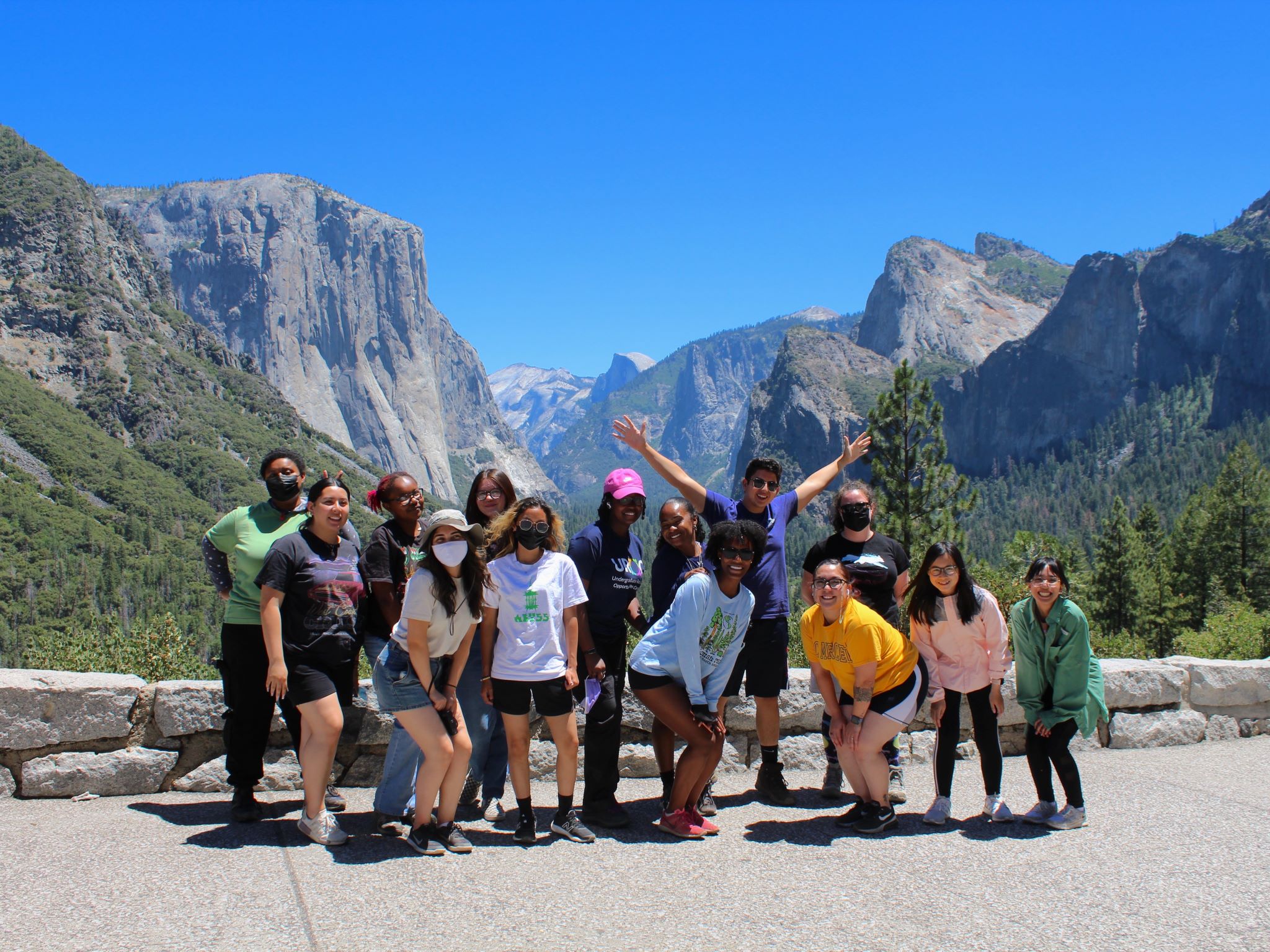
The Summer Undergraduate Research Institute (SURI) is a vital component of the Undergraduate Research Opportunities Center and is designed to introduce scholars to academic research alongside a faculty mentor. SURI provides research enrichment activities that prepare undergraduate students for successful entry into graduate programs. In addition, undergraduate scholars attend weekly graduate preparation and research development workshops, as well as participate in academic-related field trips.
At the end of the 9-week summer program, students present their oral and poster presentations at UC Merced’s Annual Summer Research Symposium.
Learning Outcomes
The goal of SURI is to provide UROC Scholars with experience in all aspects of the research process.
At the conclusion of this experience, student participants will:
- Generate a clear research question or problem by identifying and demonstrating appropriate research methodologies, use of terminology, concepts, and theories in their field.
- Identify common ethical challenges and practice responsible research by conveying awareness of cultural values, legal protections, policies, and regulations.
- Apply critical thinking skills and be comfortable with the ambiguity of research, whether working autonomously or collaboratively to manage a project.
- Gain confidence to communicate constructively with research mentors, graduate students, and faculty.
- Develop skills to explain their research to experts in the field and broader audiences through research presentations.
- Articulate the relevance of their participation in undergraduate research to make decisions about their future, whether for graduate school or the workforce.
UROC Scholars develop critical research skills as well as improve their communication skills through the presentation of their research results in both written and oral forms. The training students receive through SURI will prepare them to succeed in graduate school and jumpstart their careers in research, leadership, and public service.



SURI 2025
The dates for SURI 2025 will be Monday, June 2nd through Friday, August 1st.
This includes orientation day(s) and optional bootcamp workshops throughout the first week and will end with the summer symposium. Student move-in for those who need on-campus housing will be announced in Spring semester.

